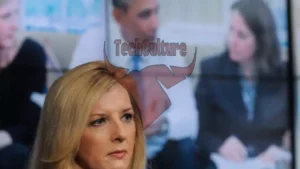Trump Taps Silicon Valley Veteran David Sacks as AI and Crypto Czar
In a move that underscores the growing influence of Silicon Valley in politics, former President Donald Trump has appointed tech entrepreneur David Sacks as his administration’s AI and cryptocurrency czar. The announcement, made on December 5, marks a significant step in bridging the gap between the tech industry and government policy.
Sacks, a South African-born entrepreneur and investor, brings a wealth of experience from his time in the heart of Silicon Valley. Born in Cape Town in 1972, Sacks moved to Tennessee at age five and later attended Stanford University, where he forged connections with tech luminaries like Peter Thiel and Elon Musk.
After a brief stint at McKinsey, Sacks joined Confinity, which later became PayPal, serving as COO from 1999 to 2002. This experience placed him firmly within the “PayPal Mafia,” a group of influential tech entrepreneurs who have gone on to shape the industry.
Sacks’ career has been marked by successful ventures and investments. He produced the film “Thank You for Smoking” in 2005, founded Yammer (sold to Microsoft for $1.2 billion in 2012), and co-founded Craft Ventures in 2017. His investment portfolio includes stakes in Facebook, Palantir, and SpaceX.
In recent years, Sacks has become increasingly involved in political discourse. He hosts the popular podcast “All-In,” which has gained traction among conservative circles in Silicon Valley. His political donations have been inconsistent, supporting figures across the spectrum, including Mitt Romney and Hillary Clinton.
As AI and crypto czar, Sacks is expected to guide the deregulation of the cryptocurrency industry and serve as a liaison between the administration, Congress, and regulatory agencies. He will also head a council of advisors on science and technology. Notably, the position does not require Sacks to divest or disclose his assets and involves limited annual workdays.
This appointment is part of a broader trend of Silicon Valley leaders joining the Trump administration, signaling a potential shift in the relationship between tech and government. As the lines between technology and policy continue to blur, Sacks’ role may prove pivotal in shaping the future of AI and cryptocurrency regulation in the United States.





